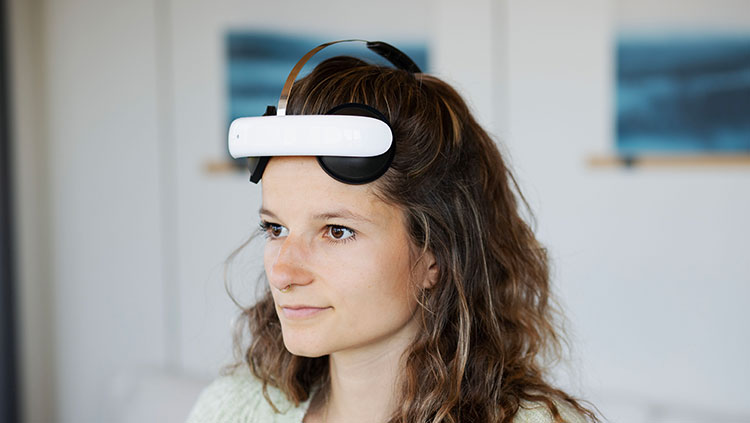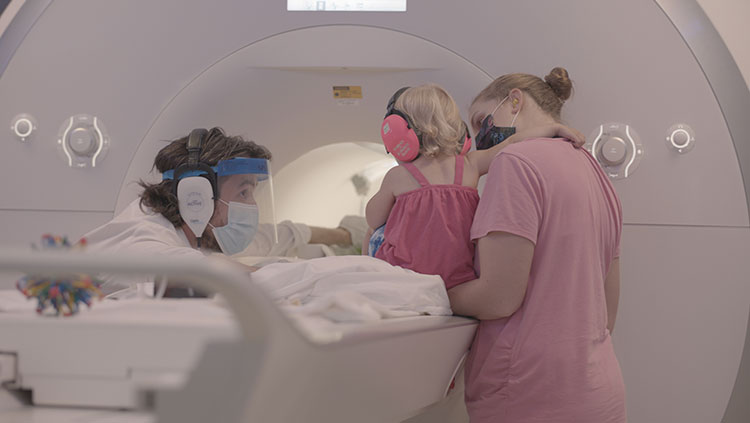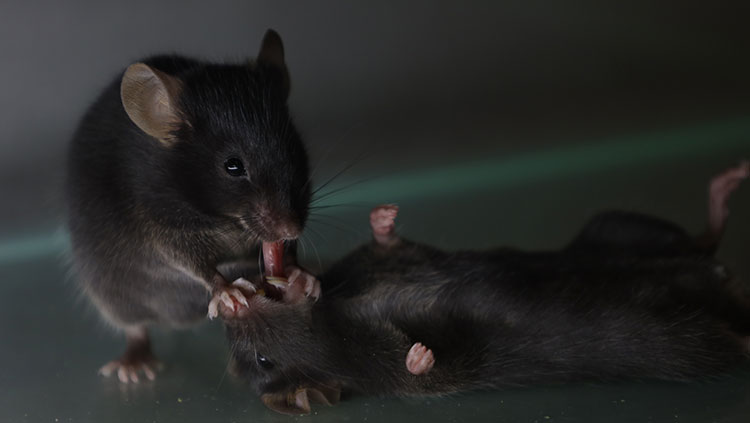ICYMI: Stress Disrupts Memory Formation in Mice, Causing Unnecessary Fear
- Published12 Dec 2024
- Author Bella Isaacs-Thomas
- Source BrainFacts/SfN

Severe stress can cause mismatched emotional reactions, like when a person feels intense anxiety in an objectively safe situation. A study published Nov. 15 in Cell sheds light on the neurobiology behind this fear response. An international group of researchers found stress can disrupt memory formation in mice, diminishing their ability to differentiate between neutral and triggering circumstances.
Researchers put adult mice into a state of stress by either injecting them with a glucocorticoid hormone called corticosterone or physically restraining them. They then exposed the group of stressed mice and a group of non-stressed mice to two separate noises: first, a medium-pitched sound and later, a high-pitched sound. The second sound was capped by a two-second shock to their feet. Afterward, they placed the same mice in a different setting and played both sounds. The unstressed mice tended to freeze only when they heard the sound associated with the shock. But the stressed mice froze when they heard either sound. This response indicates the latter group didn’t note a meaningful difference between the two, responding with fear to both situations, according to Nature.
Memories are thought to be captured by engrams, or networks of neurons active as an experience is happening. In response to the shock, the unstressed mice developed typical engrams, which are composed of a fairly limited number of neurons. This memory was activated when they heard the high-pitched noise. The stressed mice, however, formed larger engrams comprised of more neurons which activated in response to either noise. This is because their stress blocked inhibitory interneurons in the amygdala, a brain region associated with fear and anxiety, which typically dampen how many neurons become part of an engram. This interference allowed more neurons to join the engram, making it larger.
Big Picture: People with PTSD or anxiety often perceive nonexistent threats, an experience which can be upsetting and disruptive to their daily lives. Among people, bigger engrams associated with traumatic memories could possibly be linked to those overgeneralized fear responses, according to Live Science. It’s not clear if or how the findings of this study could influence mental health treatment options in humans, but Nature reported that the researchers plan to explore whether engrams could be tweaked after they’re formed to retroactively alter the impact stress has on memory.
Read More: Stress can disrupt memory and lead to needless anxiety — here’s how. Nature
More Top Stories
- Forcing a smile or frown through brief electrical stimulation can influence your mood. Scientific American
- Neurobiologists discovered why dogs (and other hairy mammals) shake vigorously after getting wet. Phys.org
- People with alcohol use disorder who were taking GLP-1 drugs were less likely to be hospitalized for reasons related to the condition. NBC News
- A small dose of fright — like the type you get while watching a horror film — could potentially bring down elevated inflammation levels. New Scientist
- Researchers used fMRI to map 24 brain networks which activate when we watch movies. Live Science
- Like neurons, kidney cells can store information, or “memories.” Science News
- Among cichlids — a fish family with a strict social hierarchy — fish with lower statuses appear to have higher levels of oxidative stress in their brains. Popular Science
- A large review examining why people’s brains age differently suggests around half of this variability can be traced to cognitive ability in childhood. CNN
CONTENT PROVIDED BY
BrainFacts/SfN
References
What to Read Next
Also In Neuroscience in the News
Trending
Popular articles on BrainFacts.org


.jpg)















